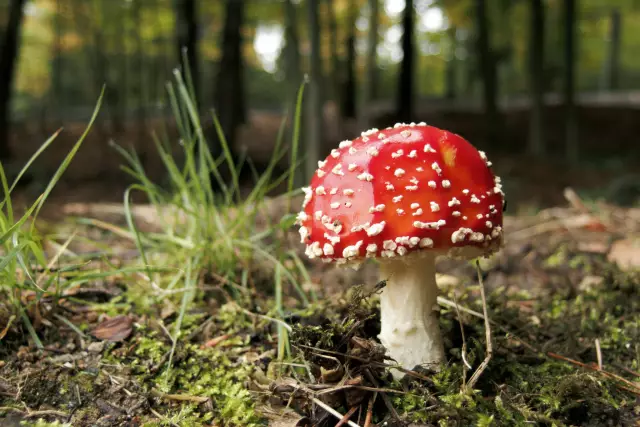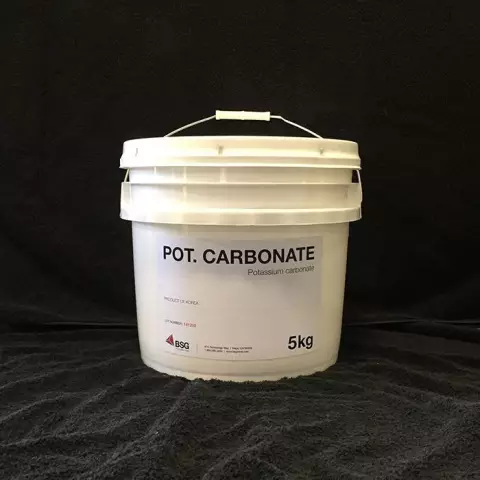- Author Rachel Wainwright [email protected].
- Public 2023-12-15 07:39.
- Last modified 2025-11-02 20:14.
Curry

Curry is a mixture of spicy condiments. It is quite widespread throughout the world, but India is its homeland. There curries are cooked just before use, which gives this food supplement an even spicy and aromatic flavor. The taste of curry is not spicy, a little specific, so not everyone may like it.
Health benefits of curry
The main ingredient in curry is turmeric, a herb from the Ginger family that uses pounded roots and stems containing essential oils. Curry contains at least 30% turmeric. It has a pleasant spicy smell, a bitter, slightly astringent taste and a persistent yellow color that does not fade in the sun.
Known for the anti-inflammatory and cleansing properties of turmeric, it improves liver function. Especially useful is the addition of turmeric to meals rich in protein - by stimulating the digestive glands, it improves the digestion of proteins.
Research into the properties of curcumin, a substance derived from turmeric, has proven its ability to prevent cancer and fight Alzheimer's disease.
In addition to turmeric, curry seasoning includes a variety of other herbs, which may differ from curry manufacturer.
Cumin in curry, thanks to a set of essential oils, gives a pleasant and delicate flavor to the seasoning. It has anti-inflammatory, carminative, lactogonic, antispasmodic properties, facilitates the functioning of the kidneys and the digestive system, improves metabolism, skin condition. Thanks to cumin, the beneficial properties of curry have a positive effect on the course of gastritis, gallstone and urolithiasis.
Mustard seed promotes the absorption of fatty foods, as it enhances the formation of gastric juice, improves appetite, stimulates intestinal motility with a tendency to constipation. The last property of mustard seed is used to regulate the intestines, including the seed in gastric tea. Black mustard helps with arthritis and gout.
Cumin is very similar in appearance to cumin but tastes completely different. It removes toxins from the body, normalizes the functions of the digestive tract, improves the functioning of vision and brain. When stored for more than a year, cumin becomes bitter and loses all its beneficial properties, therefore it is included in the curry recipe only when the seasoning is directly prepared.
Essential oils of coriander fruit in the seasoning give dishes a delicate and pleasant cooling smell and taste. Coriander has positively proven itself in gastritis and peptic ulcer disease - it eliminates pain and has an antiseptic effect. These properties made it possible to include coriander in the gastric and choleretic collection.
Ginger is added to curries both fresh and dry in powder form. It gives food a pungent flavor and has beneficial effects on digestion and circulation. So, ginger reduces gas formation, prevents constipation, improves appetite.

Due to fennel, curry has a sweetish flavor. It is added to this seasoning quite a bit, since in case of an overdose, it becomes predominant in the whole dish. Fennel enhances lactation and perspiration, and has carminative properties.
Black pepper gives food a hot, pungent taste. It is added in the form of peas or ground. This widely used supplement improves digestion and induces appetite. Sometimes other types of pepper are included in curry - Indian pippali, chilli, serrano.
Shambhala in grains gives food a bitter, spicy, sweet taste, tones up and restores strength. Shambhala contains a lot of folic acid and vitamin E, it improves blood formation, strengthens hair and reduces weight. Hing gives the curry a spice.
Salt is added to the seasoning to preserve the rest of the seasoning. When preparing food, keep in mind that the curry already contains salt, and add it to the dish with this in mind. Traditional Indian cuisine is distinguished by the fact that more salt is added to the food than is usually recommended.
Eating curry
The main purpose of the seasoning is to improve the taste of food. The beneficial properties of curry help improve food digestion by stimulating the digestive glands.
There is no exact ratio of ingredients when making curries, and in India, the proportions are approximated when preparing the seasoning. But despite this, the aroma of curry cannot be confused with any other.
Curry is suitable for adding it to meat, fish, vegetable dishes and rice. Curry gives dishes an interesting golden hue. This seasoning perfectly complements the taste of pilaf, vegetable stews, chicken salad, pasta, meatballs, minced meat.
Caution in the use of curry is required for individual intolerance to the seasoning.
Found a mistake in the text? Select it and press Ctrl + Enter.






